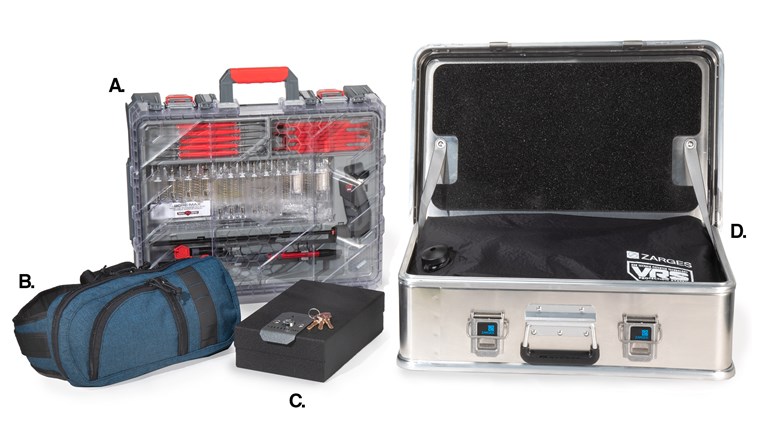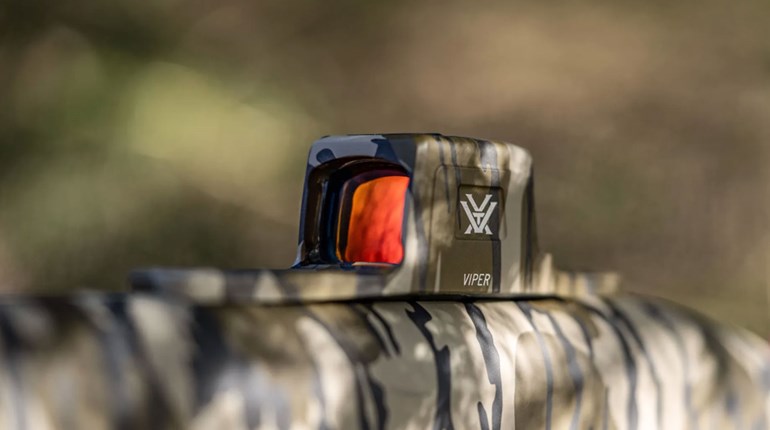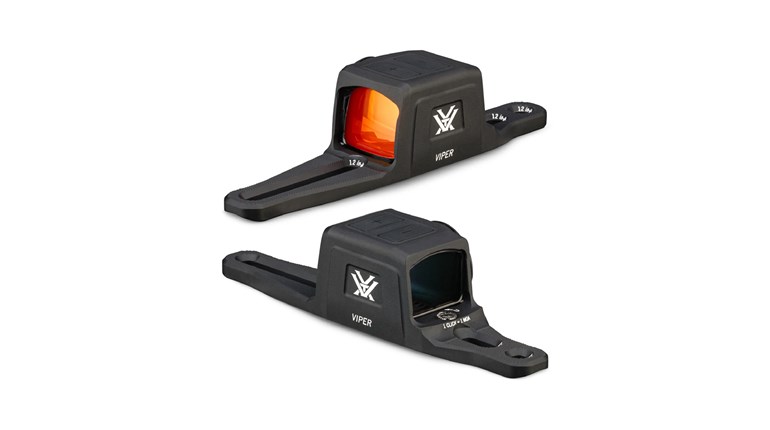
As the year winds down, a little retrospection is natural. In First Gear terms, it means we happened across a heretofore unrecognized pattern in an important class—optics. In a word, Vortex.
Back in May, we tag-teamed a 1-6x24 Razor HD with a reissued IWI “Galil.” Results were, well, outstanding—an innovative, smooth-shooting update to an already great rifle, paired with a versatile, ultra-rugged optic. Recently, we migrated this optic to another 7.62x51 rifle, and worked it even harder.
You won’t strain your imagination predicting the results of the Razor’s return: Outstanding, yet again. But here’s why we reprise it in “First Gear”: Well-meaning rifle shooters need to rethink their planning/acquisition for optics. You may not really need the massive magnification you think you do (nor the footprint it requires), and truly superb glass is not beyond “everyman’s” reach.

As to the first consideration, when we put some good handloaded ammo (thanks to our Redding T7), the 6x magnification allowed us to produce slightly over MOA accuracy at 200 yards. If we, decent riflemen at best, can reproduce this without über magnification, perhaps you can, too, and for the same reason—clarity and precision matter more than absolute magnification. All the while, remember you’ll still have great 1x CQB facility (complete with a truly daylight-visible dot), as well as trimmer dimensions—especially those low-capped turrets.
If you think we’re overstating this, consider: In the interim, Vortex has added a JM-1 ballistic drop-compensating reticle as an option on the Razor 1-6x24. “JM” are initials, by the way …
<<Dramatic pause>>
… yes, that JM. If Jerry Miculek thinks you can hit to 600 yards with 6x magnification and an appropriate reticle—his design, by the way—please feel free to ignore any of our exhortations.
Back to the “within reach” part of our hypothesis: We subscribe to the notion that optics should generally equal or exceed the cost of the rifle. This is common sense—aiming is the predecessor, hitting the successor. Unhappily, keeping loved ones warm and dry rightly intrudes. But a little planning and getting your Google on can save a lot of money and put that buy-it-once glass where it needs to be (here, from our friends at MidwayUSA – $1,399). Just sayin’.
There are two other Vortexes on our reprise list, though only one, in strict terms, belongs. The first is the 3x “Spitfire” Prism, the Vortex version of a time-honored way to pack magnification into short physical lengths (think binoculars here, if the concept seems foreign). Although the reticle is a ballistic drop compensation type scaled mostly for AR-pattern rifles in .556/.223 Rem., we’ve had this 16-ounce, super-adjustable peach on everything from rimfires up to 7.62x51s without so much as a hiccup. Five brightness settings in either red or green are available, and a riser and Picatinny mount mean you’ll have to try to complicate an install.

If there’s a better backup optic that will accommodate a huge variety of fill-in roles, we have a hard time imagining what it would be, to say nothing of steady duty on a short-to-intermediate-purposed rifle.
Our last item is a new one, at least to us: The 1x “Spitfire AR.” Short length, AR-appropriate height-over-bore, red or green five-level illumination, and even lighter weight harken to the 3x forebear, but that’s where differences start to appear. If speed is the name of your game, here’s your ticket.
This will shout at you once the reticle comes up. Building on the eye/brain system’s preference for concentricity, the 1x Spitfire “DRT” (dual ring tactical) puts a 140 MOA (3 MOA thick) ring around a 40 MOA (6 MOA thick) ring, and a 3 MOA center dot. With half MOA clicks and 120 minutes of adjustments in both directions, it’s hard to visualize—ha, ha!—a configuration that won’t zero up nicely, and fairly blaze from center mass to center mass to center mass on nearly any legit target you can imagine. For precision hits elsewhere, don’t forget that 3 MOA center dot.
The Vortex folks make no secret of angling the 1x toward tactical application ARs (as in our lead photo), but we think the all-but-instantaneous centering begs another application—Pistol Caliber Carbine. At the ranges that these fun, reliable and backstop-friendly guns run, they’re practically guaranteed success. The nice, deep eye box and triple “A” battery choice will prove popular as well.
Come to think of it, we’ve got a nice PCC that’s sightless just now …
Frank Winn has been studying arms and their relationship to tyranny, meaningful liberty and personal security all his adult life. He has been a firearms safety/shooting instructor for more than 20 years, and earned state, regional and national titles in several competitive disciplines.


































